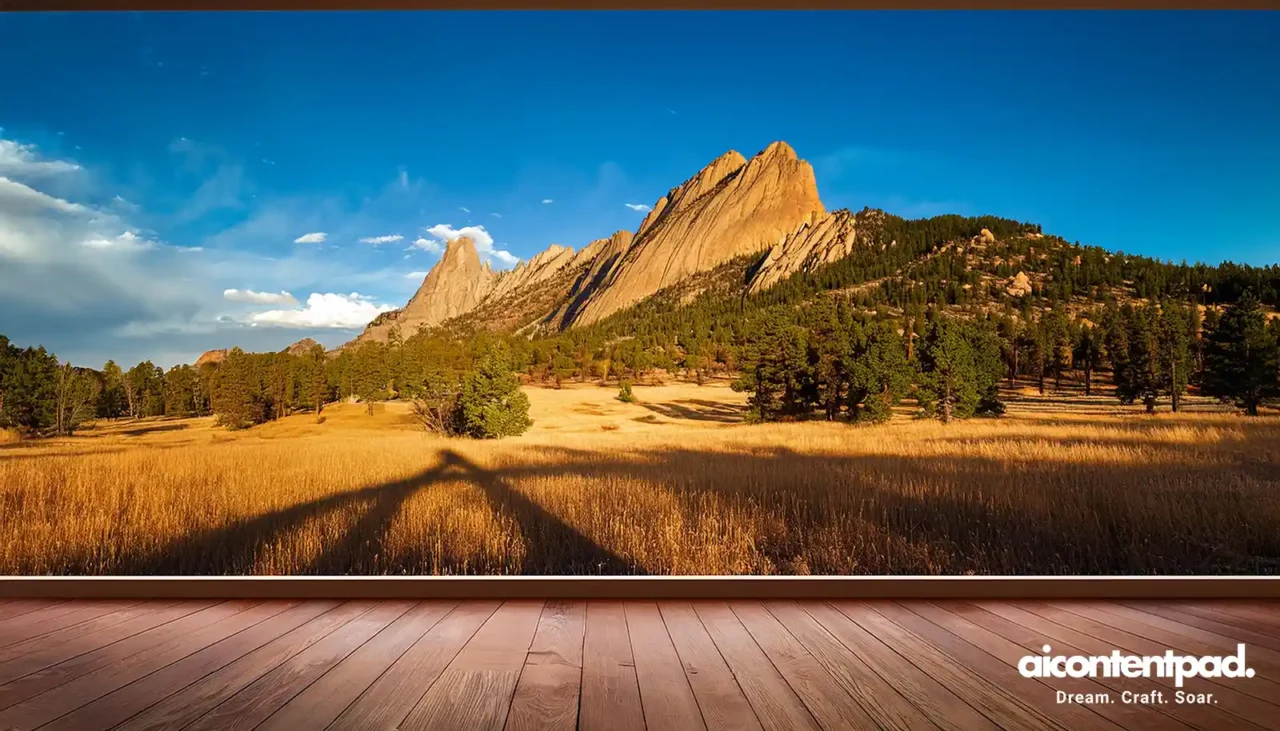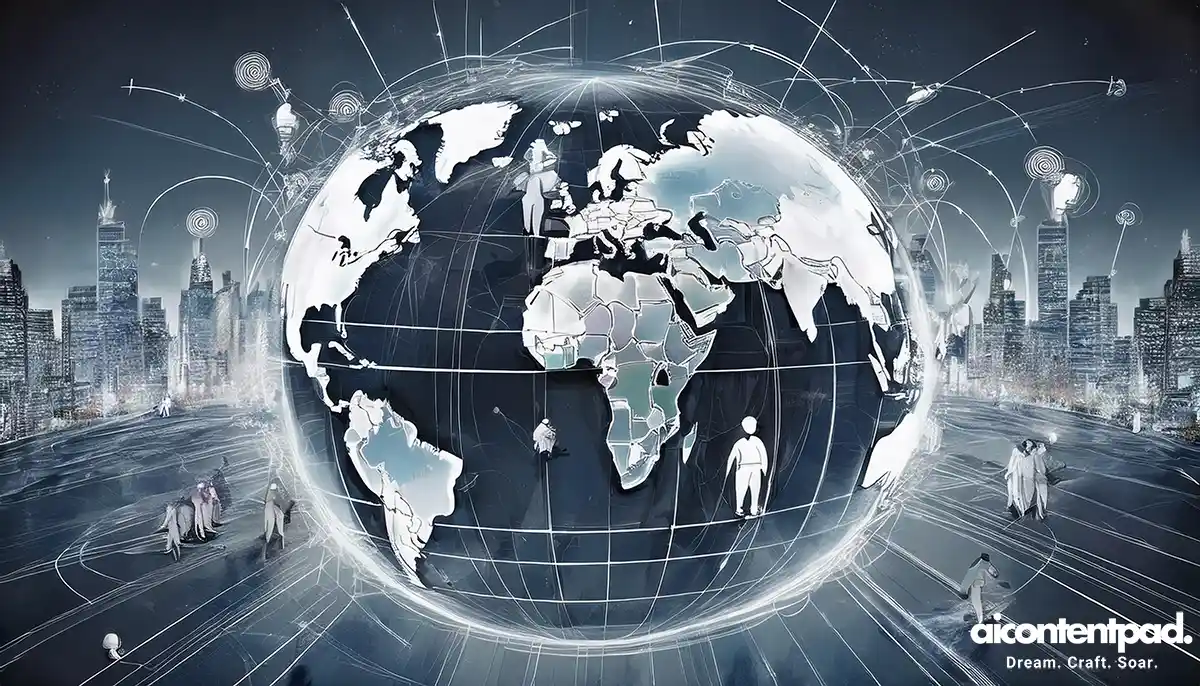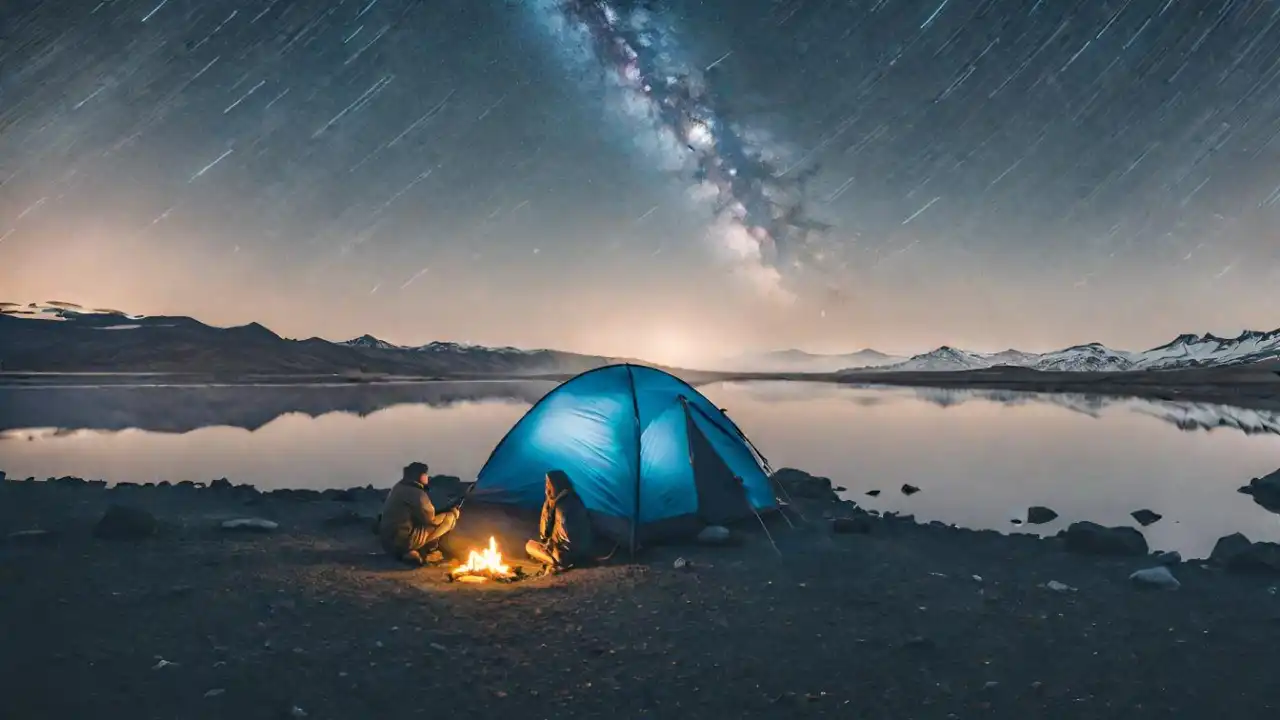Types of Marketing Content for Hospitality Companies
The Types of Marketing Content for Hospitality Companies Matters!
In the fast-paced world of hospitality, staying competitive means continuously delivering engaging, high-quality content that resonates with guests and keeps them coming back.
From social media posts showcasing the unique guest experience to blog articles highlighting local attractions, the need for fresh, relevant content has never been greater.
However, keeping up with this demand can overwhelm many hospitality companies. That’s where solutions like Matrix’s AIContentPad come into play, providing a faster, more cost-effective way to generate top-tier marketing content.
By streamlining the content creation process, AIContentPad enables hospitality businesses to focus on what they do best—delivering exceptional guest experiences—while maintaining a strong digital presence.
Sarah sat back in her chair, taking in the email that had just popped into her inbox. Natural Retreats wanted her expertise in streamlining operations across Natural Retreats’ 17 destinations.
With over 1,500 properties to manage, they needed a fresh, dynamic approach to maintaining their high-end, personalized service while scaling their marketing efforts.
As the marketing manager, Sarah thrived, overseeing the branding and promotion of luxury properties across iconic locations. From beachside getaways to mountain cabins, she’d turned vacation homes into dream experiences for travelers.
The call from Natural Retreat presented a new challenge: enhancing operations without sacrificing the unique touch that made Natural Retreats stand out.
Upon arriving at Matrix’s office in Denver, Colorado, she felt the energy of a company that understood the evolving demands of marketing in the digital age.
The conversation quickly turned to utilizing multi-channel integrated marketing to personalize guest outreach, refine content strategies, and expand their presence in under-marketed destinations.
Matrix had the strategy, technology, and talent to pull it off. But Sarah had the inside insights to turn those pot of resources into magic for every Natural Retreats property.
Together, they would craft a strategy that married technology with a human touch, ensuring that each traveler’s journey was memorable from the first interaction to the final check-out. This partnership was the perfect fit, and Sarah couldn’t wait to dive in and help Natural Retreats reach new heights.
The Power of Content: Elevating Hospitality Marketing Strategies

In today’s digital age, where 88% of consumers trust online reviews as much as personal recommendations, how hospitality companies communicate their value is more critical than ever.
As marketing managers, you are at the forefront of this communication, tasked with attracting and retaining customers in a highly competitive industry.
With diverse content strategies available, the challenge is selecting the right ones that resonate with your audience and drive results.
Understanding Your Audience: The First Step to Effective Content
Before diving into content creation, it’s essential to understand who your audience is and what they value.
In the hospitality industry, this means recognizing the diverse needs and preferences of travelers, business professionals, and event planners.
Transparency is key here; potential guests want to know precisely what they’re getting, and ambiguity can lead to mistrust.
To address this, ensure your content is clear, concise, and informative. Leverage data analytics to gain insights into your audience’s behavior and preferences, allowing you to tailor your content more effectively.
Types of Content that Captivate and Convert
Hospitality companies can leverage various content types to engage their audience, each serving a unique purpose.
Visual content, such as high-quality images and videos, showcasing your property’s amenities and atmosphere is particularly impactful.
A HubSpot study found that video content is 50 times more likely to drive organic search results than plain text.
User-generated content, like guest testimonials and reviews, builds credibility and trust, as potential customers see genuine experiences from their peers.
Lastly, informative blog posts or articles can establish your brand as an industry thought leader, offering valuable insights and tips that resonate with your audience’s interests.
The right mix of content types can significantly enhance your marketing strategy.
By addressing potential concerns upfront and providing transparent, evidence-based information, you can build trust with your audience, ultimately driving engagement and conversions in the hospitality industry.
Understanding Types of Marketing Content in Hospitality Companies

Unveiling the Core of Hospitality Marketing
The world of hospitality is a vibrant mosaic of experiences, where the allure lies in how establishments present themselves to their audience.
At the heart of this industry is the strategic deployment of various marketing content types. From enticing Instagram visuals to engaging blog narratives, hospitality companies use various media—visuals, texts, videos, and more—to capture travelers’ wanderlust spirit.
But what fuels this multifaceted approach?
Creating lasting connections and elevating guest experiences is necessary to transform potential visitors into loyal patrons.
The Why Behind Content Variety
Why diversify? In an era where every experience counts, the diverse types of marketing content serve distinct purposes, from enhancing brand visibility to forging emotional connections.
A well-curated photo on social media can capture the essence of a luxurious suite, while an informative blog post might provide insider tips on local attractions.
Such content engages and educates, creating anticipation and igniting curiosity about undiscovered adventures.
This tailored approach ensures that different audience segments are met at various stages of their journey, from dreaming to booking.
Crafting Content in Strategic Spaces
Where do hospitality companies make their mark?
Marketing content finds its home across myriad platforms. Social media channels such as Instagram and TikTok are visual playgrounds, perfect for showcasing stunning visuals and snippets of extraordinary experiences.
Websites and blogs are canvases for captivating storytelling and detailed insights, painting a picture of what awaits. Email newsletters bring personalized content directly to the audience, nurturing relationships and sparking future visits.
For the insightful marketing manager, understanding where to place each type of content is essential. It transforms hospitality from a service into an unforgettable story waiting to be experienced.
The Hidden Costs of Content Production: Are You Spending Too Much?

Struggling with Skyrocketing Content Production Costs?
In today’s fast-paced digital landscape, marketing managers face a common enemy: the ever-increasing cost of content production.
The resources required to produce high-quality content are substantial, from hiring skilled writers and graphic designers to managing multiple revisions and coordinating various teams. These financial burdens can rapidly deplete even the most generous of marketing budgets.
The math is simple.
The cost and efficiency of maintaining a full-time team of seven marketing managers versus outsourcing content generation and marketing services to Matrix Marketing Group are stark, particularly when considering return on investment (ROI).
Full-Time Marketing Team
Hiring a full-time team of seven marketing managers involves significant upfront and ongoing costs:
- Average salary per marketing manager: $75,000/year
- Total salary cost for a team of 7: $525,000/year
- Benefits (healthcare, retirement, etc.) at 30% of salary: $157,500/year
- Additional overhead (office space, software tools, etc.): $35,000/year
- Total annual cost: $717,500/year
Beyond salary, there’s the investment in training, onboarding, and retaining talent. Managing such a team requires strong leadership and coordination to ensure productivity and meet deadlines.
Despite the substantial costs, a team of this size may still struggle to produce the same volume and quality of content as an outsourced team specializing in marketing across industries.
Outsourcing to Matrix Marketing Group
On the other hand, outsourcing content creation and marketing strategy to Matrix Marketing Group presents a more scalable, cost-effective solution:
- Comprehensive content and marketing services package: $275,000/year
- Includes content generation, social media management, paid and organic search strategies, campaign execution, data analytics, and reporting.
- 24/7 access to AIContentPad for faster, high-quality content production.
- No additional costs: All associated overhead, tools, and technology are included in this package.
Return on Investment (ROI)
By outsourcing to Matrix Marketing Group, companies save significantly on annual costs:
- Total savings: $717,500 (full team cost)—$275,000 (Matrix package) = $442,500 saved annually.
Moreover, Matrix Marketing Group’s AI-driven tools, such as AIProdPad, AIBrandPad, and AIContentPad, ensure faster time-to-market for campaigns and a higher volume of content at a lower cost.
With AIContentPad, content generation is optimized, providing faster, cheaper, and more consistent outputs than a traditional in-house team. This translates into greater marketing efficiency and, ultimately, increased revenue.
ROI Example:
Assume the average marketing campaign drives $50,000 in additional revenue:
- A full-time team might manage 10 campaigns annually, generating $500,000 in revenue.
- Matrix’s optimized approach, including AI-driven content, could manage 15 campaigns in the same period, driving $750,000 in revenue.
With Matrix Marketing Group’s lower cost and higher campaign volume, the company saves on operational costs and generates an additional $250,000 in revenue, delivering a much stronger ROI.
In conclusion, companies can achieve significant cost savings and enhanced marketing performance by outsourcing to Matrix Marketing Group, with a total ROI surpassing the traditional full-time team approach.
Are these costs eating away at your company’s profits? You’re not alone.
The Ripple Effect: How High Costs Impact Your Bottom Line

As expenses accumulate, teams are often forced to cut corners. Limited resources can lead to rushed assignments, inconsistent messaging, and a diluted brand presence.
As marketing managers feel the pressure to deliver, creativity and innovation can take a backseat, leaving you with content that doesn’t effectively engage your audience.
The high training cost and turnover can strain your budget further, causing projects to lag or be abandoned altogether. There are more sustainable ways for marketing departments to operate.
Harness AI for Seamless, Cost-Effective Content Creation
Enter AI Marketing Solutions – The Game Changer
Imagine a world where your content creation process is streamlined and cost-effective.
Our AI-powered marketing solutions offer you just that. With the ability to generate high-quality content at a fraction of the traditional costs, these tools can help you refocus your resources on strategy and innovation.
Our solutions enable marketing managers to produce engaging, tailored content without breaking the bank by automating repetitive tasks and providing data-driven insights.
It’s time to rethink your content strategy and discover how AI can revolutionize the way you work.
Ready to Transform Your Marketing Strategy?
Unlock the power of AI to experience efficiency like never before.
Don’t let the hidden costs of content production hold your brand back any longer.
Let our AI marketing solutions catalyze change, delivering quality content that captivates audiences and boosts your ROI.
Curious to learn more? Reach out today for a demo and step into the future of marketing.
How Storytelling Transforms Hospitality Marketing
“As a content strategist working with leading hospitality brands, I’ve witnessed firsthand the power of storytelling in engaging potential guests,” says Laura Goldman, a content strategy expert at an international hotel chain.
“By crafting narratives around local culture, unique guest experiences, and memorable interactions with staff, hotels are not just selling rooms; they’re selling emotions and connections.
This approach enables a deeper connection with the audience, encouraging them to envision themselves as part of the story. And what’s remarkable is that this form of marketing doesn’t just attract attention but sustains interest over time, cultivating loyal patrons.”
Visual Content: The Secret Ingredient to Captivating Audiences
“Visual content is the secret weapon of hospitality marketing,” claims Tom Hurley, a digital marketing manager at a luxury resort.
From high-resolution photos to immersive 360-degree videos, visuals can evoke a property’s elegant ambiance and unique character.
Instagram and Pinterest have proven particularly influential. They inspire travelers through stunning visuals, often sparking a desire to explore new destinations.
Collaborations with influencers who create authentic and engaging visual content can significantly boost a hotel’s credibility and broaden its reach.”
Customer-Generated Content: Turning Guests into Ambassadors
“One of the most intriguing trends I’ve observed in hospitality marketing is the rise of customer-generated content,” notes Sophie Lin, a senior marketing consultant specializing in the tourism sector. “Encouraging guests to share their experiences on social media increases brand visibility and enhances authenticity.
A potential guest is likelier to trust recommendations from fellow travelers than the brand itself. By incentivizing reviews, photos, and guest stories, hospitality companies turn their clients into brand ambassadors, creating a ripple effect of organic marketing.”
These compelling insights into the types of marketing content hospitality companies utilize reveal a landscape rich with innovation and potential.
From evocative storytelling to the strategic use of visual content and the embrace of customer-generated content, hospitality marketing managers are continually finding new ways to engage and inspire prospective guests.
Best Practices in Hospitality Marketing Content
Engaging and memorable marketing content in the hospitality industry is key to capturing consumers’ hearts and loyalties.
Successful brands utilize various marketing content types to evoke emotions and drive bookings.
An effective content strategy highlights a venue or service’s unique features and fosters a sense of community and experience among guests.
Interactive Storytelling: Immerse Guests in a Journey
One unknown yet remarkable brand utilizing interactive storytelling is Stayfari, a boutique hostel chain that creates an immersive digital journey for potential guests.
Stayfari transports viewers to their destinations’ hearts through engaging videos and visually captivating blog narratives.
By weaving personal traveler stories with on-site experiences, the brand effectively paints a vivid picture of what guests can expect, enticing them to book their next adventure.
How Marketers Are Spending Their Money
In 2025, Chief Marketing Officers (CMOs) are strategically allocating their budgets to navigate a rapidly evolving landscape characterized by technological advancements, shifting consumer behaviors, and economic uncertainties.
AI-Powered Personalization: Tailor Offerings to Individual Preferences
EcoVibe Resorts, an eco-friendly hotel chain, harnesses the power of AI-powered personalization to deliver curated content that resonates with individual preferences.
By analyzing guest data, EcoVibe can recommend personalized travel itineraries, local experiences, and dining options that match their customers’ interests.
This customized approach enhances the guest experience and fosters a connection with the brand, as travelers feel valued and understood.
Community Engagement: Building Authentic Connections
Another innovative brand embracing community engagement is GatherInn Retreats. Recognized for its intimate wellness retreats,
GatherInn actively involves its online audience in shaping future experiences. The brand bridges the gap between guest expectations and service offerings using social media polls, live Q&A sessions, and community forums.
This transparent interaction creates a loyal community of guests who feel involved in the GatherInn journey, ultimately transforming them into brand advocates.
Incorporating these best practices into your marketing strategy can elevate your hospitality brand.
By embracing interactive storytelling, AI-powered personalization, and community engagement, lesser-known brands like Stayfari, EcoVibe Resorts, and GatherInn Retreats have successfully captured what modern travelers seek: authentic and enriching experiences.
Dive into Matrix: Transforming Hospitality Marketing Content
Understanding Matrix’s AI-Agents
In the evolving marketing world, hospitality companies constantly seek innovative ways to captivate audiences.
In this context, the AI agent is a dynamic concept that allows marketers to unravel the complex relationships between different types of marketing content, such as social media posts, blogs, videos, and email campaigns.
By harnessing the power of the AI agent, hospitality marketers can map out a strategic blueprint that effectively combines creativity with data-driven insights.
Creating the Matrix Blueprint
Identifying Content Pillars
To begin your journey with Matrix, identify the core content pillars aligning with your brand’s voice and objectives. These include luxury experiences, local culture, dining, and guest stories.
Each pillar serves as a foundational element from which various types of content can be developed.
A well-defined Matrix enables marketers to visualize where each type of content fits within the broader strategic plan, ensuring a cohesive message across all platforms. AIBrandPad is a smash hit!
Matrix Mapping and Execution
With the pillars in place, the next step is to map them out within the Matrix framework. This phase focuses on determining each content type’s purpose, target audience, and distribution channels.
For instance, visually striking images of the hotel’s amenities are perfect for Instagram, while in-depth articles about nearby attractions could engage readers on a company blog.
This structured approach maximizes reach and fosters a seamless flow of information that captivates and retains customer interest.
Engaging the Audience
Embracing Matrix’s AI solutions in hospitality marketing offers a transformative approach to content creation.
By strategically interconnecting varied types of content, hospitality companies can tell compelling stories that showcase their unique offerings.
This method not only sparks curiosity but also builds lasting connections with audiences.
As marketers continue to explore and refine their Matrix strategies, they unlock unlimited potential to engage readers in exciting and meaningful ways.
Exploring the Diverse World of Hospitality Marketing Content
A unique and compelling marketing strategy is vital in the competitive hospitality industry.
With many content types, hospitality companies can effectively captivate their audience.
Below, we dive into innovative marketing content types that have successfully engaged and retained customers.
Visual Storytelling Through High-Quality Imagery

The hospitality sector thrives on visual appeal. High-quality images and videos are crucial marketing tools, allowing potential guests to immerse themselves in the establishment’s offerings.
From showcasing the luxurious ambiance of a hotel room to the exquisite presentation of a restaurant’s signature dish, visual storytelling helps convey the experience awaiting customers.
Intriguing social media teasers and virtual tours enhance this immersive approach, sparking curiosity and engagement.
Engaging Through Informative Blogs and Articles
Another dynamic method hospitality companies use to connect with their audience is providing value-driven content through blogs and articles.
These pieces often address travel tips, destination guides, or culinary insights, reflecting the brand’s expertise and enhancing trust.
Valuable content drives web traffic and boosts SEO, making it easier for users to find and choose the services offered by these companies.
Building Relationships with User-Generated Content
User-generated content (UGC) is vital in digital marketing, particularly hospitality.
Encouraging satisfied customers to share their authentic experiences builds credibility and promotes community engagement.
Whether through Instagram takeovers, customer testimonials, or interactive contests, UGC fosters a sense of connection and belonging among guests.
This organic content is invaluable, acting as a modern word-of-mouth endorsement.
In Conclusion
By leveraging these diverse content types, hospitality companies can create a multi-faceted marketing approach that attracts and retains an engaged audience.
The blend of visually appealing media, informative written content, and relatable user interaction ensures a comprehensive strategy that resonates on multiple levels, ultimately enhancing the customer experience.
In the highly competitive hospitality industry, having strong marketing content is essential for building a lasting brand presence.
With many choices available to travelers, hotels, resorts, and other hospitality companies must differentiate themselves to attract loyal customers.
Compelling content that effectively conveys the brand’s story, values, and unique offerings helps create an emotional connection with potential guests, which is key to standing out in a crowded market.
Another crucial reason hospitality companies need good marketing content is its ability to drive direct bookings.
By providing clear, persuasive messaging on your website, you can encourage travelers to book directly with your property rather than through third-party platforms.
This helps build a relationship with guests and allows companies to reduce commission fees, improve profit margins, and have more control over the customer experience from the start.
Also, high-quality content allows hospitality companies to showcase their unique experiences. Whether it’s exclusive services, special events, or local attractions, engaging storytelling through blogs, social media, and visual content can capture the imagination of potential guests.
By highlighting what makes your property special, you can entice travelers to choose your destination over competitors who may offer similar accommodations but lack the same personalized touch.
Lastly, good marketing content is critical for improving online visibility. Search engine optimization (SEO)-friendly content helps hospitality companies rank higher on search engines, making it easier for travelers to discover and book accommodations.
Moreover, content that provides valuable information and answers common guest questions builds trust and engagement, leading to positive reviews, repeat bookings, and long-term customer loyalty. Effective content brings guests in the door and keeps them coming back.



